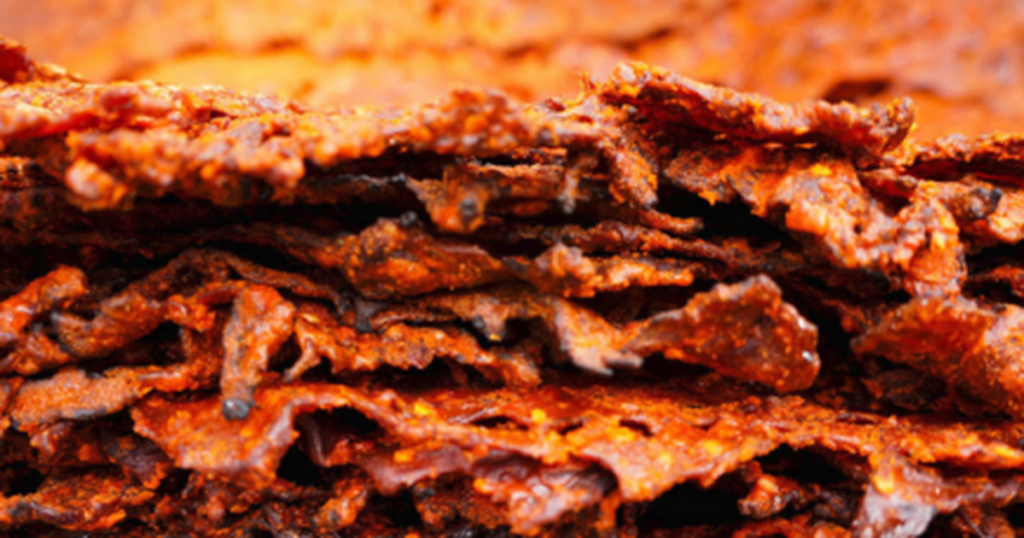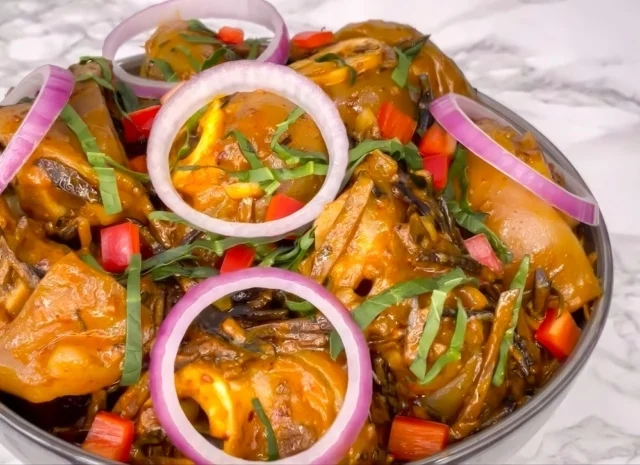Nigeria’s 5 Must-Try (Spicy!) Foods
Nigerian cuisine is a vibrant tapestry of bold flavors, reflecting the country’s rich cultural heritage. From the smoky depths of suya to the comforting warmth of jollof rice, Nigerian food is a celebration of taste and tradition.
However, while many dishes tantalize the taste buds, some can pose hidden health risks if enjoyed without moderation.
This article explores five popular Nigerian foods that deserve a spot on your plate, but with a mindful approach to portion control and preparation methods.

1. Suya: The Alluring Danger of Grilled Goodness
Suya, skewered and grilled meat, is a national obsession. Its smoky aroma and fiery spice are enough to make anyone’s mouth water.
However, the high grilling temperatures can lead to the formation of heterocyclic amines (HCAs) and polycyclic aromatic hydrocarbons (PAHs), compounds linked to an increased risk of cancer.
Here’s how to enjoy suya safely:
- Limit frequency: Make suya an occasional treat, not a daily staple.
- Choose wisely: Opt for lean cuts of meat like chicken or fish, which generally form fewer HCAs during grilling.
- Char less: Ask the vendor to cook your suya to a medium doneness, avoiding charring that increases HCA formation.
- Pair with health: Balance the richness of suya with a side of fresh salad or grilled vegetables, adding fiber and essential vitamins.

2. Shawarma: A Middle Eastern Twist with Potential Drawbacks
Shawarma, awarma, or whatever your preferred spelling, has become a beloved street food in Nigeria.
This delightful wrap filled with spiced meat, vegetables, and creamy sauces offers a symphony of textures and flavors. However, the convenience often comes with a hidden cost – processed meats.
These meats frequently contain nitrates and nitrites added for preservation. While generally safe in small amounts, excessive consumption has been linked to an increased risk of certain cancers.
Here’s how to make shawarma a healthier choice:
- Go homemade: Prepare your shawarma filling with lean, freshly cut meats or vegetarian alternatives like falafel.
- Seek transparency: Ask your shawarma vendor if they use processed meats. If so, consider exploring other options.
- Embrace variety: Shawarma fillings can be endlessly customizable. Experiment with vegetables, lentils, or grilled tofu to create a healthier and flavourful experience.
3. Nkwobi: A Delicacy with a Cautionary Note
Nkwobi, a flavorful dish of cow feet simmered in a rich palm oil sauce with potent spices, is a true Nigerian delicacy. While undeniably delicious, nkwobi is naturally high in potassium.
This mineral is crucial for healthy blood pressure and muscle function, but for individuals with kidney problems or those at risk of hyperkalemia (high potassium levels), consuming nkwobi can be problematic.
Here’s how to enjoy nkwobi responsibly:
- Know your health: If you have any concerns about kidney function, consult your doctor before indulging in nkwobi.
- Portion control: Enjoy nkwobi in moderation, savoring smaller portions alongside other dishes.
- Explore alternatives: Consider other flavorful Nigerian dishes that are naturally lower in potassium, like pounded yam ( pounded cassava) with egusi (melon) soup.

4. Kilishi: The Allure of Spicy, Jerky-like Goodness
Kilishi, a spicy dried meat, is a portable protein punch and a popular Nigerian snack. Its long shelf life and intense flavor profile make it a traveler’s delight. However, the drying and seasoning process often involves a generous amount of salt.
This can contribute to high blood pressure (hypertension), a major health concern in Nigeria.
Here’s how to enjoy kilishi mindfully:
- Seek unsalted options: Look for kilishi varieties prepared with less or no added salt.
- Hydrate well: When enjoying kilishi, make sure to drink plenty of water to counteract the dehydrating effects of salt.
- Pair with balance: Choose fruits or vegetables alongside kilishi to create a more balanced snack, providing essential vitamins and minerals.

5. Deep-Fried Delights: Rethinking Puff-Puff, Akara, and Plantain Chips
Puff-puff, akara (bean fritters), and plantain chips are iconic Nigerian street foods. Their crispy exteriors and comforting textures are hard to resist. However, the deep-frying process often utilizes unhealthy oils containing trans fats.
These fats raise bad cholesterol (LDL) levels while lowering good cholesterol (HDL), increasing the risk of heart disease, stroke, and type 2 diabetes.
Here’s how to enjoy these treats guilt-free:
- Embrace the oven or air fryer: Try baking or air-frying these treats at home. It allows for a healthier preparation method using minimal oil, resulting in a crispy and satisfying snack without the added trans fats.
- Experiment with healthy oils: If frying remains your preferred method, opt for healthier oils like avocado oil or canola oil with a high smoke point.
- Portion control: Enjoy these deep-fried delights in moderation. Remember, everything is delicious in moderation!
Nigerian cuisine offers a vibrant exploration of flavor and tradition. By understanding the health aspects of these popular dishes, you can continue to savor the rich culinary heritage of Nigeria while making informed choices for your well-being.
So, indulge in suya occasionally, explore healthier shawarma fillings, enjoy nkwobi responsibly, appreciate kilishi mindfully, and reinvent your deep-fried favorites at home.
With a little creativity and awareness, you can keep your taste buds happy and your body healthy on your delicious Nigerian food adventure.















Leave a Reply